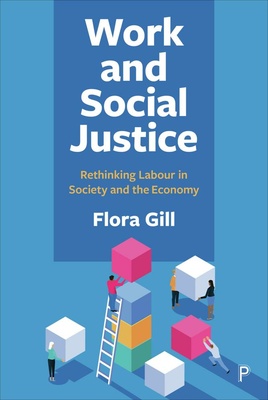As a labour economist, I’m inherently sceptical of Universal Basic Income (UBI) proposals. I will always argue that, first, we need to provide real opportunities for genuine full employment, by which I mean employment for the full number of hours a person wishes to be in paid work, close to where they reside.
In short, if people want to work, they should be able to. Currently, this is not the case. Before we institute a UBI, we need to ensure this basic human right. Not just for the enhanced economic opportunities that work can provide, but also for the major positive contribution that well-designed jobs make to our emotional and physical health.
Genuine full employment is not merely a fairy tale. And we are not short of areas where person-power is sorely needed. Our hospitals, schools and aged care sector are all short of qualified staff, and with better funding could be greatly improved. For example, increasing funding to state schools could enable a reduction in class sizes, which would both generate employment opportunities and also improve learning outcomes. The multifaceted challenges of climate change and other forms of environmental destruction likewise require a large-scale response. Properly funded, that response could be a driver of employment to replace the ageing industries and fossil fuel extraction operations where jobs are currently disappearing.
I would, however, support a UBI under certain very strict conditions. The first, naturally, is genuine full employment. And not just full employment. We’d also need well-funded retraining programmes for workers needing to reskill in response to agents of upheaval within the labour market, such as climate change, AI and automation. Sweden’s active manpower programme, which has been functioning healthily since the mid-1930s, provides an excellent model. If we don’t offer workers from industries undergoing rapid transformation opportunities to retrain, and simply provide a UBI, we are failing those workers. And make no mistake, a UBI would sit well below subsistence levels; we simply can’t fund a universal payment that is more generous.
Beyond that, I’d be looking to see several guarantees of equality of opportunity, a critical measure of the health of a social democracy. For example, a guarantee that everyone has equitable access to the highest quality education, health and aged care, based on need and not on wealth. This requires a shift away from private sector provision in these areas. Only the public sector can properly manage these services for the public good, free of stratifications based on wealth or status. A UBI cannot provide equitable access to these services, as some have suggested, particularly if they stay in private hands. If we are to have a UBI, it should only come once we have established equitable access to primary services by having strong, publicly funded systems and a healthy welfare safety net.
The next condition is quality social housing for all who need it. A radical proposition, many would argue. However, there is ample evidence to suggest that larger investment in social housing reaps social, economic and political dividends that repay those investments several times over. A UBI implemented in the absence of a comprehensive social housing programme would only compound housing inequality. Those on a UBI would be unable to afford accommodation where jobs exist, and would be pushed out into areas where employment opportunities for their children will be scarce. Only comprehensive social housing programmes can prevent this kind of eventuality under a UBI.
Until these conditions are met, I remain steadfastly opposed to UBI proposals. In my opinion, they have the capacity to entrench and expand our current levels of inequality, which have already been growing for more than four decades. If we don’t begin to reverse the neoliberal approach to labour relations which caused this growth, basic income will simply provide the infrastructure to maintain a permanent underclass of uneducated, unemployable children of those subsisting on the UBI.
The answer is higher taxes, particularly for those who can most afford it. A UBI, on its own, requires a massive injection of tax revenue not currently circulating in our economies. But to nurture our health, education and aged care sectors, to adequately respond to climate change and other ecological challenges, and to effectively retrain workers for tomorrow’s workforce, we’ll need to tax the wealthy heavily. I’d also argue that, at this point, we should also progressively tax away the UBI as people’s income rises, so we’re not wasting public money on those who don’t need it.
For the sake of argument, let’s imagine that all of my conditions have been met. There is genuine full employment, excellent public education, healthcare and aged care, robust worker retraining programmes and comprehensive social housing. Under these conditions, a UBI is a wonderful, stigma-free alternative to our current unemployment benefits systems. It’s also a lovely artist’s grant, for those not interested in commercialising their work. But again, this is only a tenable proposition if all of my conditions are met. And the most fundamental of those conditions is the need to provide genuine full employment. The UBI is wonderful as a replacement for unemployment benefits, and a good stabiliser for those on unstable incomes, but it can never replace full employment as a long-term solution.
Flora Gill is Honorary Associate Professor of Work and Organisational Studies at the University of Sydney.
 Work and Social Justice by Flora Gill, is available here for 80.00 on Bristol University Press.
Work and Social Justice by Flora Gill, is available here for 80.00 on Bristol University Press.
Bristol University Press/Policy Press newsletter subscribers receive a 25% discount – sign up here.
Follow Transforming Society so we can let you know when new articles publish.
The views and opinions expressed on this blog site are solely those of the original blog post authors and other contributors. These views and opinions do not necessarily represent those of the Bristol University Press and/or any/all contributors to this site.
Image credit: Diy13 via iStock


